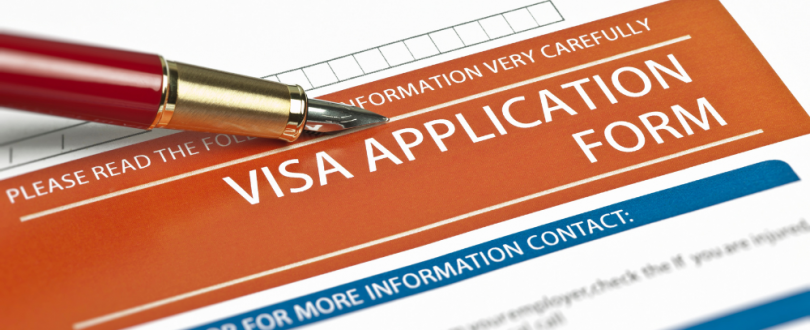
Visa Extensions: A Complete Guide to Extending Your Stay.
Traveling can be an exhilarating experience, but sometimes, you may find yourself wishing to extend your stay beyond the limits of your initial visa. Whether it’s for leisure, work, or study, understanding the intricacies of visa extensions is crucial. This guide provides a comprehensive look into the process of extending your visa, ensuring you can enjoy your extended stay without any legal hassles.
Understanding Visa Extensions
Visa extensions are an essential aspect of travel that allows visitors to prolong their stay in a country beyond the initial duration granted by their visa. This extension is particularly useful for tourists who wish to explore more, business travelers with extended work commitments, or students needing more time to complete their studies. It’s important to note that a visa extension differs from a visa renewal or a status adjustment. An extension simply prolongs the duration of your existing visa under the same conditions, while renewals and adjustments often mean a change in visa type or terms.
Eligibility Criteria for Visa Extensions
The eligibility for a visa extension varies depending on the type of visa you hold and the country’s immigration laws. Common eligibility criteria include:
– A valid reason for extending your stay, be it tourism, business, education, or personal.
– A clean immigration record, with no violations or overstays.
– Sufficient financial means to support yourself during the extended period.
– A passport is valid for the duration of the extended stay.
For specific visas, like student or work visas, additional criteria such as proof of ongoing studies or employment may be required.
Timing Your Application: When to Apply
Timing is crucial when applying for a visa extension. You should apply well before your current visa expires. The recommended time frame can vary, but it’s typically advisable to apply at least 30 days before your visa’s expiration date. Applying late can result in penalties, including fines or even deportation, and could negatively impact your ability to obtain visas in the future.
The Application Process for Visa Extensions
The visa extension process generally involves the following steps:
1. Completing the Application Form: This is often available online or at the local immigration office.
2. Gathering Required Documents: Prepare all necessary documents in advance.
3. Submission: Submit your application along with the required documents and fees. This can sometimes be done online, or you might need to visit an immigration office in person.
4. Waiting for Approval: The processing times can vary, and during this period, you should adhere to any interim conditions set by the immigration authorities.
Required Documentation for Visa Extension
While the required documentation can vary based on the country and visa type, common documents include:
- Current Passport: Valid for the duration of the extended stay.
- Existing Visa: Details of your current visa.
- Proof of Financial Means: Bank statements or a letter from a financial sponsor.
- Reason for Extension: Documentation supporting your reason for extending your stay, such as travel itineraries, business meeting schedules, or a letter from your educational institution.
Application Fees and Payment Methods
The cost of applying for a visa extension can vary depending on the country and type of visa. Typically, there is a non-refundable application fee. It’s important to check the specific fee structure for your visa category and the country you’re in, as fees can change.
Common payment methods include credit/debit cards, bank transfers, or cash payments at designated locations. Some countries also allow payment through online portals. Always ensure that you receive a receipt for your payment, as this is a crucial part of your application documentation.
Maintaining Legal Status While Awaiting Approval
While your visa extension application is being processed, it’s vital to maintain your legal status. This usually means adhering to the conditions of your current visa until the extension is granted. If your current visa expires while your application is still under review, most countries have provisions that allow you to stay legally until a decision is made.
However, this does not automatically grant you the privileges of an extended visa. For example, if you’re on a tourist visa, you shouldn’t start working or studying until the extension for those activities is officially approved.
Handling Denials and Challenges
Visa extension denials can happen, and it’s important to understand how to address them. If your application is denied, you will typically be given a reason for the decision. Depending on the country’s immigration laws, you might have the option to appeal the decision or reapply by addressing the reasons for denial.
It’s crucial to act quickly, as overstaying your visa can lead to penalties and affect future visa applications. In complex situations, consulting with an immigration attorney or a visa consultant can be beneficial.
Tips for a Successful Visa Extension Application
To enhance the chances of a successful application:
– Apply Early: Don’t wait until the last minute. Apply well before your current visa expires.
– Complete Documentation: Ensure all your documents are accurate, up-to-date, and complete.
– Valid Reason for Extension: Clearly articulate your reason for needing an extension.
– Financial Stability: Provide proof of sufficient funds to cover your extended stay.
– Follow the Rules: Adhere strictly to the visa conditions and local laws during your stay.
Extending your visa can be a straightforward process with the right preparation and understanding. Always stay informed and compliant with the immigration laws of the country you are visiting. Remember, each country has its nuances in immigration policies, so always verify the specific requirements and procedures relevant to your situation. Enjoy your extended stay, and travel responsibly!

